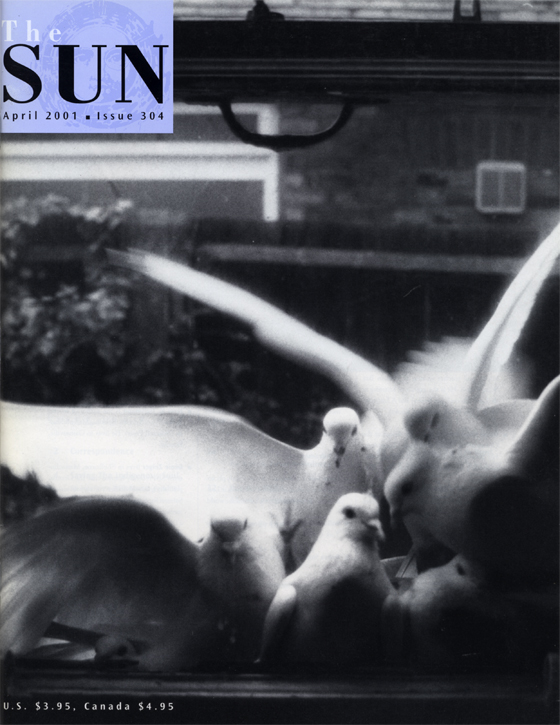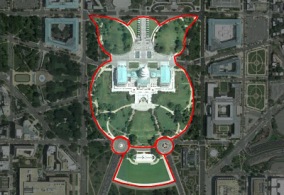You are using an out of date browser. It may not display this or other websites correctly.
You should upgrade or use an alternative browser.
You should upgrade or use an alternative browser.
Why modern architecture is making us sick
- Thread starter luc
- Start date
bjorb
The Living Force
Self explanatory

In 2017 Swedish researchers used a conference of City Center Managers (managers of tourism, commerce, hospitality industries, trade etc.) to find what kind of buildings they thought would be most beneficial for their own city centers. F won overwhelmingly. D 2nd. No-one wanted E.
"Before" picture: When you take cubism too literally.Lemmer, Netherlands

I read this article a while back, and I return to it from time to time. It is an interview with Martin Prechtel, who was born in New Mexico, and ended up being raised as a shaman in Santiago Atitlan, Guatemala before the death squads moved in. He has written a number of books about the Tzutujil Mayan way of understanding the world.
In this interview, he touches on language as a determining factor for perception, and how that translated into the architecture of his village. To me it's a fascinating look at one form of living architecture as mentioned in this article, the design pattern, or relationship between the geometry and the social.

 www.thesunmagazine.org
www.thesunmagazine.org
In this interview, he touches on language as a determining factor for perception, and how that translated into the architecture of his village. To me it's a fascinating look at one form of living architecture as mentioned in this article, the design pattern, or relationship between the geometry and the social.

The Sun Magazine | Saving The Indigenous Soul | By Derrick Jensen | Issue 304
The Mayans say that the other world sings us into being. We are its song. We’re made of sound, and as the sound passes through the sieve between this worl
Jensen: You’ve said that one problem with Western culture is its use of the verb to be.
Prechtel: When I was a child, I spoke a Pueblo language called Keres, which doesn’t have the verb to be. It was basically a language of adjectives. One of the secrets of my ability to survive and thrive in Santiago Atitlán was that the Tzutujil language, too, has no verb to be. Tzutujil is a language of carrying and belonging, not a language of being. Without to be, there’s no sense that something is absolutely this or that. If two people argue, they’re said to be “split,” like firewood, but both sides are still of the same substance. Some of the rights and wrongs that nations have fought and died to defend or obtain are not even relevant concepts to traditional Tzutujil. This isn’t because the Tzutujil are somehow too “primitive” to understand right and wrong, but because their lives aren’t based on absolute states or permanence. Mayans believe nothing will last on its own. That’s why their lives are oriented toward maintenance rather than creation.
“Belonging to” is as close to “being” as the Tzutujil language gets. One cannot say, “She is a mother,” for instance. In Tzutujil, you can only call someone a mother by saying whose mother she is, whom she belongs to. Likewise, one cannot say, “He is a shaman.” One says instead, “The way of tracking belongs to him.”
In order for modern Western culture to really take hold in Santiago Atitlán, the frustrated religious, business, and political leaders first had to undermine the language. Language is the glue that holds the layers of the Mayan universe together: the eloquence of the speech, the ancestral lifeline of the mythologies. The speech of the gods was in our very bones. But once the Westerners forced the verb to be upon our young, the whole archaic Mayan world disappeared into the jaws of the modern age.
In a culture with the verb to be, one is always concerned with identity. To determine who you are, you must also determine who you are not. In a culture based on belonging, however, you must bond with others. You are defined by where you stand and whom you stand with. The verb to be also reduces a language, taking away its adornment and beauty. But the language becomes more efficient. The verb to be is very efficient. It allows you to build things.
Rather than build things, Mayans cultivate a climate that allows for the possibility of their appearance, as for a fruit or a vine. They take care of things. In the past, when they built big monuments, it wasn’t, as in modern culture, to force the world to be a certain way, but rather to repay the world with a currency proportionate to the immense gifts the gods had given the people. Mayans don’t force the world to be what they want it to be: they make friends with it; they belong to life.
Jensen: You’ve spoken a lot today about the importance of maintenance. How does that relate to the Tzutujil practice of building flimsy houses?
Prechtel: In the village, people used to build their houses out of traditional materials, using no iron or lumber or nails, but the houses were magnificent. Many were sewn together out of bark and fiber. Like the house of the body, the house that a person sleeps in must be very beautiful and sturdy, but not so sturdy that it won’t fall apart after a while. If your house doesn’t fall apart, then there will be no reason to renew it. And it is this renewability that makes something valuable. The maintenance gives it meaning.
The secret of village togetherness and happiness has always been the generosity of the people, but the key to that generosity is inefficiency and decay. Because our village huts were not built to last very long, they had to be regularly renewed. To do this, villagers came together, at least once a year, to work on somebody’s hut. When your house was falling down, you invited all the folks over. The little kids ran around messing up what everybody was doing. The young women brought the water. The young men carried the stones. The older men told everybody what to do, and the older women told the older men that they weren’t doing it right. Once the house was back together again, everyone ate together, praised the house, laughed, and cried. In a few days, they moved on to the next house. In this way, each family’s place in the village was reestablished and remembered. This is how it always was.
Then the missionaries and the businessmen and the politicians brought in tin and lumber and sturdy houses. Now the houses last, but the relationships don’t.
In some ways, crises bring communities together. Even nowadays, if there’s a flood, or if somebody is going to put a highway through a neighborhood, people come together to solve the problem. Mayans don’t wait for a crisis to occur; they make a crisis. Their spirituality is based on choreographed disasters — otherwise known as rituals — in which everyone has to work together to remake their clothing, or each other’s houses, or the community, or the world. Everything has to be maintained because it was originally made so delicately that it eventually falls apart. It is the putting back together again, the renewing, that ultimately makes something strong. That is true of our houses, our language, our relationships.
It’s a fine balance, making something that is not so flimsy that it falls apart too soon, yet not so solid that it is permanent. It requires a sort of grace. We all want to make something that’s going to live beyond us, but that thing shouldn’t be a house, or some other physical object. It should be a village that can continue to maintain itself. That sort of constant renewal is the only permanence we should wish to attain.
JGeropoulas
The Living Force
Looks like the all-seeing eye at the top of a pyramid, just as the capital layout in Washington looks like an owl (i.e. wisdom in darkness).I stumbled on this picture, I thought the thread would be appropriated
Buckingham palace from above:
View attachment 67423

9. Secrets of the Owl: Part 3.1 – Capitol Hill and Dollar Bills
Before getting started here I strongly recommend that you read the posts below, in fact it’s imperative that you do, or else this will be like opening a book in the middle and you won’t have a clue…
 thenarrowgateweb.com
thenarrowgateweb.com

Another "owl" in architecture (the Frost Building in Austin, Texas).


Last edited:
Looks like the all-seeing eye at the top of a pyramid, just as the capital layout in Washington looks like an owl (i.e. wisdom in darkness).

9. Secrets of the Owl: Part 3.1 – Capitol Hill and Dollar Bills
Before getting started here I strongly recommend that you read the posts below, in fact it’s imperative that you do, or else this will be like opening a book in the middle and you won’t have a clue…thenarrowgateweb.com

Another "owl" in architecture (the Frost Building in Austin, Texas).
I always ask myself how they manage to influence the decision-making plan. But I guess this is through lodges, request for proposals being rigged by only recruiting architects in the inner circle.
JGeropoulas
The Living Force
The craftiness, patience, persistence and tenacity of those aligned with darkness is truly amazing (and quite daunting to us respecters-of-free-will types)-- and speaks to the hyperdimensional (i.e. outside of earth time) nature of those actually orchestrating schemes.I always ask myself how they manage to influence the decision-making plan. But I guess this is through lodges, request for proposals being rigged by only recruiting architects in the inner circle.
in fact, your comment motivates me to post my post on swaruu, see the swaruu thread.The craftiness, patience, persistence and tenacity of those aligned with darkness is truly amazing (and quite daunting to us respecters-of-free-will types)-- and speaks to the hyperdimensional (i.e. outside of earth time) nature of those actually orchestrating schemes.
This is the new Museum of Ethnography in Budapest. I like this design.
View attachment 73991
indeed, a very nice design

